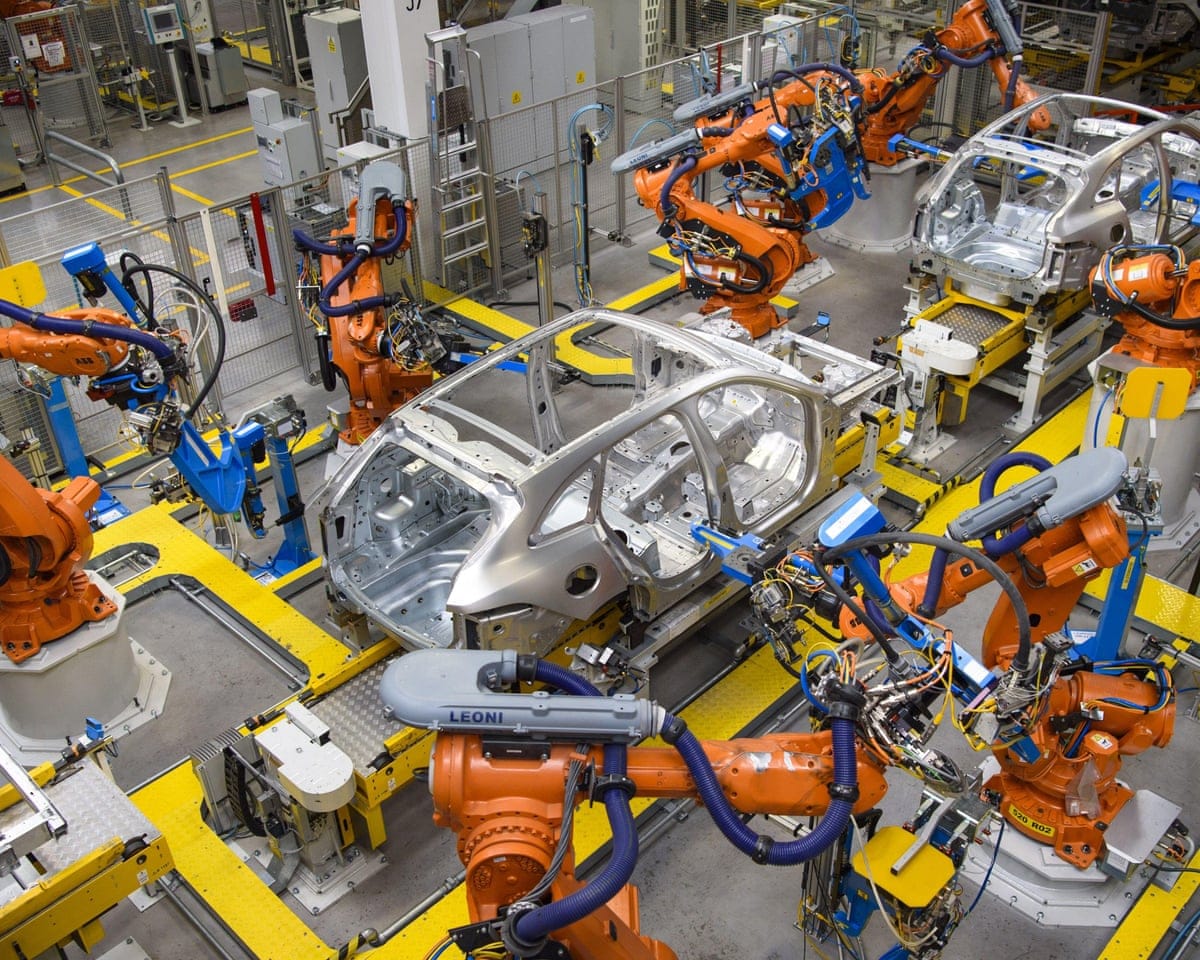Shipments of Minis, Aston Martins, and Range Rovers will head to the U.S. starting Monday as the trade agreement between the U.K. and U.S. takes effect. However, British farmers argue they were overlooked in favor of protecting auto manufacturers.
Auto exports to the U.S. dropped by more than half in May after a 25% tariff was imposed in early April, in addition to the existing 2.5% charge.
Beginning at 12:01 a.m. U.S. time Monday (5 a.m. in the U.K.), the tariff will decrease to 10% for cars, which U.K. automakers expect will trigger delayed demand.
Adrian Hallmark, chief executive of Aston Martin, stated that the company halted shipments between April and June, a situation he described as "not catastrophic, but slightly inconvenient."
The framework for the trade agreement was finalized in early May between the U.S. and U.K. leaders, marking the first bilateral deal to ease the impact of the import taxes. However, delays in finalizing details meant the higher tariff remained, increasing costs for U.S. importers by over 25%.
Hallmark recently told a car industry conference that he planned to "bill three months of sales in one day," as U.S. inventories had fallen by 50% due to the pause.
Aston Martin sells 90% of its vehicles abroad, but its affluent clientele proved patient. "Demand has remained strong, and we expect solid performance when sales resume next week," he added.
Before the trade deal took effect, Jonathan Reynolds, the business secretary, sought assurances from Lotus that its U.K. facility in Hethel, Norfolk, would remain open. This followed reports that the automaker was considering moving production to the U.S., threatening 1,300 jobs.
A spokesperson for the Department for Business and Trade confirmed that Reynolds met with Lotus and its parent company, Geely, and was assured of their commitment to U.K. operations with no plans to shut the Hethel plant.
Any decision by a high-profile brand like Lotus to shift production overseas would be a setback for the U.K. government. A recently published industrial strategy highlighted automotive manufacturing as a key sector for support.
The auto industry initially welcomed the trade deal, which prevented job cuts at Jaguar Land Rover (JLR), known for its Range Rover models, popular in the U.S.
However, the reduced 10% tariff only covers up to 100,000 vehicles annually—just under last year’s export totals—leaving minimal room for expansion. JLR alone shipped 84,000 cars in the year ending April 2025.
The agreement also proposed zero tariffs on steel, but discussions over sourcing materials for smelting, especially at Tata’s Port Talbot facility, have delayed this provision.
Read next

Ryanair plane had only six minutes of fuel upon Manchester landing, records show
Flight Narrowly Avoids Disaster After Storm Diversion
An inquiry has been launched after a Ryanair flight, struggling against severe winds during storm Amy last week, landed at Manchester Airport with only six minutes’ worth of fuel remaining.
The aircraft had been transporting passengers from Pisa, Italy, to Prestwick, Scotland, on

"Qantas customer data for 5 million exposed as hackers release info post-ransom deadline"
Hackers Leak Personal Data of 5 Million Qantas Customers on Dark Web
A cybercriminal group has released personal records of 5 million Qantas customers on the dark web after the airline did not meet their ransom demand.
The breach is part of a larger global incident affecting over 40 companies,

Investors flee record-high UK stocks as EU set to hike steel tariffs
Investors Withdraw Record Sums from Equity Funds Amid High Market Valuations
Data reveals that investors in the UK have withdrawn an unprecedented amount of money from equity funds over the past three months, driven by concerns over soaring stock market valuations.
According to the latest figures from Calastone, the largest

